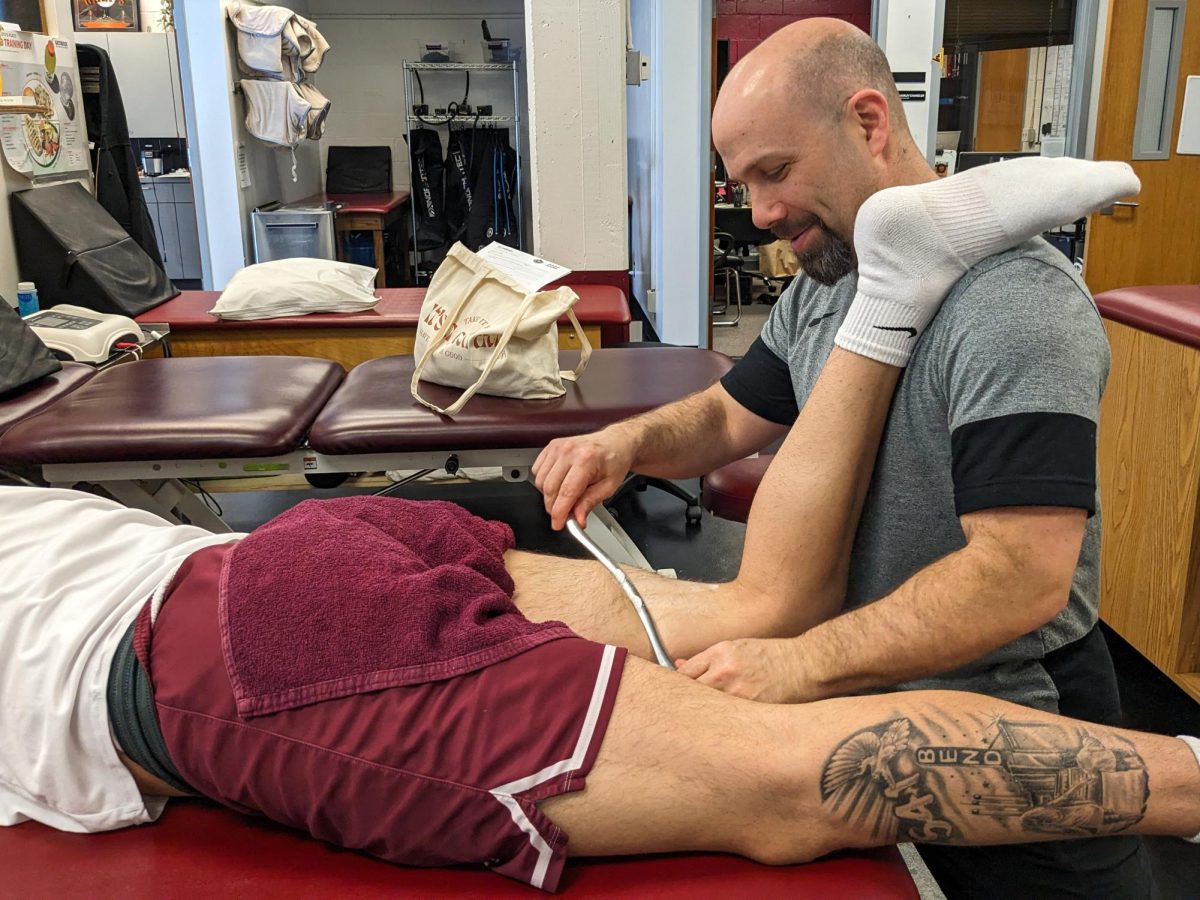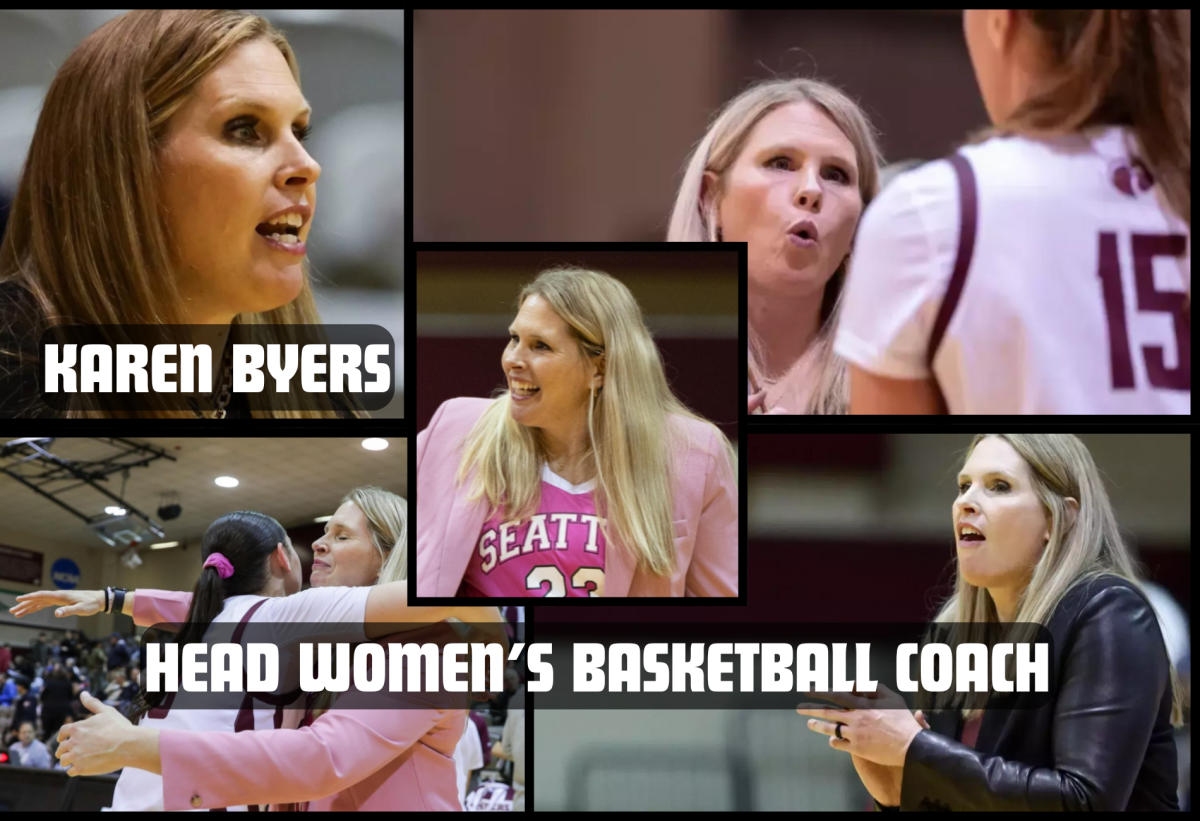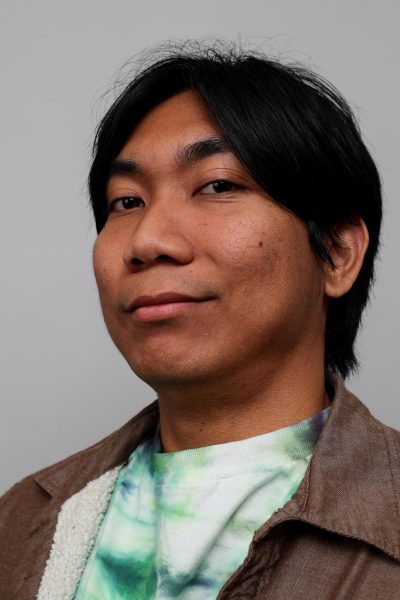Whether at Seattle Pacific University or anywhere else, a huge piece of the student athlete experience is staying consistent and healthy. An athlete needs to be aware of their mental and physical well-being, and sometimes, they need support from athletic trainers and sports medicine professionals.
Athletic Director Dan Lepse understands this and ensures that the department prioritizes injury treatment and prevention with the help of his longtime head athletic trainer and Director of Sports Medicine Jason Durocher.
“We have a really good staff of athletic trainers. Jason Durocher and [Assistant Athletic Trainer] Shirley Chandler really do a good job. Jason has been here for 16 years now, and we’re happy we have him overseeing that area,” Lepse said.
To maximize efficiency on the road and at SPU’s home gym, Lepse shares how the trainers have full lead when handling rehabilitation and treatment.
“We’ve adopted a clinical model so there will always be someone [with us] even when we travel,” Lepse said. “We have budgeted for the training room, for athletic trainers to staff events and for all the equipment they use. We wait to use equipment or search for equipment that they think is necessary. That’s their expertise, so we give them the resources to handle that area.”
Durocher explains the procedure for treating and rehabbing athletes begins when they first arrive at SPU. The department’s pre-preparation exam is conducted to evaluate prior injuries and whether an athlete is strong enough to handle the rigor of their sport at the collegiate level.
“Every student athlete must have a thorough physical with our team physician. We look for prior concussions, prior heart issues, and we do an electrocardiogram, an orthopedic exam and then we can assess the capacity of that student athlete,” Durocher said. “We pick up on potential hazards, then we talk to that student athlete and recommend [what they could] incorporate into their training regularly as an injury prevention thing.”
The rest of the process is a journey throughout the athlete’s time at SPU. For smaller and less serious injuries, Durocher and Chandler treat the athletes in-house using a multitude of tools ranging from deep heat ultrasound to Graston tools used for soft tissue manipulation.
“All of our student athletes know there are two full-time athletic trainers here and our primary role and responsibility is injury assessment, management and rehabilitation,” Duricher said. “Once they are evaluated and we identify the nature of their injury, we initiate the process of treatment, which could be anything from an ice bag to complex other forms of treatment like ultrasound, electrotherapy, or even more advanced things.”
Serious or severe injuries are often treated out-of-house, meaning the athlete is referred to the team physician or sent to the emergency room for further treatment. Durocher and Chandler then develop exercise and rehabilitation routines for the athlete based on the results.
“Oftentimes, if the injury is severe enough, then an athlete would get referred to our team physicians [for] additional screening like potentially MRI and X-ray. Typically 24 to 48 hours after that injury, they would start rehabilitation,” Durocher said.
Chandler clarified that an athlete may still be referred to the ER for less-urgent injuries if no improvement is seen after two weeks.
“We usually do at least two weeks of conservative treatment, manage it in-house and if we haven’t seen much improvement then we’ll make a referral,” Chandler said. “Something is wrong, so we want to get imaging right away. We don’t have an X-ray or MRI at our disposal here, so we have to send them to our two team doctors.”
More important than an athlete being physically ready to return is being mentally ready.
“A huge part of the return to sport is your state of mental readiness, preparedness and confidence for doing the tasks required in your sport. Typically, when an athlete gets hurt, their first question is, ‘When can I go back and play?’” Durocher said. “If all they do is think about their injury, they are going to get hurt again. I’m certainly not a psychologist, but we need to recognize when an athlete needs a referral to a professional and make sure they get what they need to be at their best.”
Durocher and Chandler can only help the athletes so much. When they realize an athlete needs a referral for mental health reasons, they refer them to the university’s counseling services.
“We have really good support on campus. Our mental health counselors are wonderful. We’ve recommended people there, and we’ve been happy with their service,” Lepse said.
Monitoring and treating injuries, keeping watch for signals and maintaining working equipment for student athletes is a demanding job, but it can also be a fulfilling job that becomes more so every year.
“We have a relationship with our student athletes. We know them, and we have the medical history in our back pocket,” Chandler said. “I know exactly what it looks like when somebody is in really bad pain or if they’re experiencing a return of symptoms. That’s one of the things I love the most about my job, that we have a working relationship with them from day one until the end of the season.”



















































































